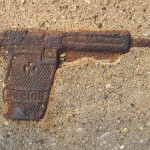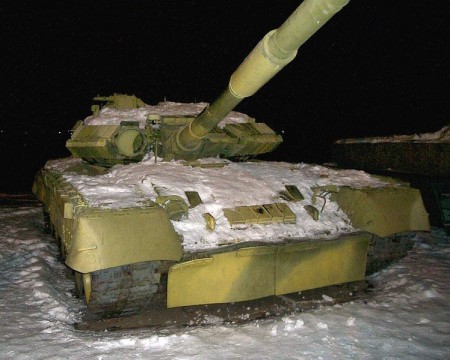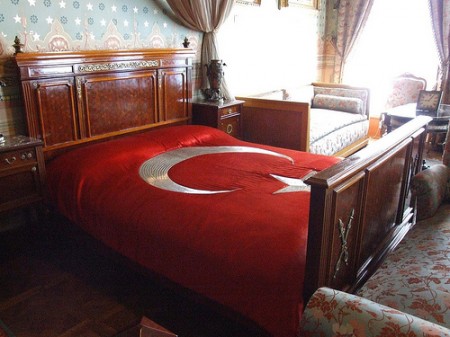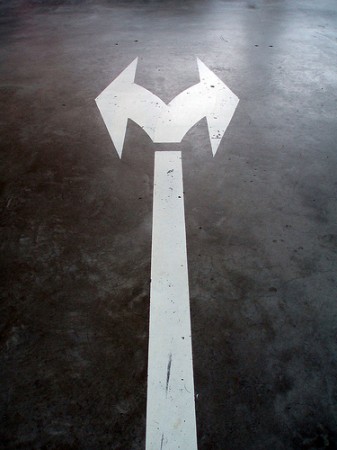Its pipeline power has made it a country to watch. How well do you know Turkey, the subject of this week’s Special Report? Test your knowledge in this week’s ISN Quiz.
[QUIZZIN 8]
Its pipeline power has made it a country to watch. How well do you know Turkey, the subject of this week’s Special Report? Test your knowledge in this week’s ISN Quiz.
[QUIZZIN 8]

Since US President Obama was elected, the far right has embraced radical fringe movements that do little to hide their desire to expound revolution in the US. A recent article, Oath Keepers and the Age of Treason has brought attention to the activities of armed militia groups in the US.
Militias have always been part of the American landscape, well before the American Revolution, where they played a decisive role in the US gaining its independence. Contemporary militia movements like the Oath Keepers regularly draw on this association as a source of legitimacy (as the “true keepers of liberty”) and as a justification for their rejection of the federal government in general and the Obama administration in particular.
What is striking is that these armed militias are confident enough to publicly describe their recruitment, training and mobilization activities and to express their hostile intentions toward the US government. In fact, it is in the realm of public activities that the perception and tolerance of these groups is a change from the past. Oath Keepers receive local support from the Tea Party-movement, which, in turn, enjoys support at the national level from state governors, congressmen and senators, as well as regular coverage by the mainstream media.
This is a telling reflection of the political imbalance in the US. While ordinary citizens protesting the war in Iraq were allegedly investigated and harassed by the police and the CIA, right-wing armed militia groups (made up of former military and policemen) can verbally attack the president, the federal government, and call for rebellion; all with the implicit (and in some cases explicit) support of public figures and political leaders. Analysts who dismiss the contradiction as “just national politics” or as the far right’s “desperate” search for voter support in populist movements may be underestimating the depth of the political divide in America.

Russia’s tanks have enjoyed a glorious reputation since the end of World War II, securing buyers and admirers all around the world. How they are safeguarded and where they are found can, however, still be surprising and downright frightening.
Close to the city of Yekaterinburg in the Urals villagers found dozens of abandoned tanks, identified as a mixture of T-80 and T-72 main battle tanks “parked” next to railway tracks. Reports differ on the number of tanks, with estimates ranging between 100 and 200 vehicles. They have been sitting there for almost four months covered in snow, reports add.
The video footage available (1 and 2) shows that at least some of the vehicles were unlocked, open for everyone to take a personal tour. Apparently the only items missing were live rounds and the keys to the tanks’ ignitions. But maybe they were just under another snow heap?
A military spokesperson was quick to point out that special patrols were guarding the tanks, which were being dispatched to a military base.
In the meantime the army has embarked on a hasty operation to relocate the tanks.
This incident comes just days after top military commanders stated that Russia doesn’t need half of its 20,000 tanks.
Could you park one of them close to my train station, please?

This week the ISN explores the geopolitical implications of Turkey’s strategic location at the intersection of civilizations. For the first time since its Ottoman glory days, the country appears poised to capitalize on its position at the crossroads of East and West.
In this week’s Special Report:

Mohammed El Baradei, former IAEA secretary general, was recently in the headlines for a rather unexpected reason. Upon his return to Egypt from Vienna he seemed to (tacitly) accept the mantle of challenger to Mubarak rule, potentially placing him in the running for the presidency in 2011.
Does he have what it takes to take on a regime known for severe suppression and dislike of opposition figures?
He has many assets that the other (past and present) candidates do not have.
He is an internationally recognized diplomat, he won the Nobel Peace Prize in 2005 and he is known for his rigorous, professional attitude. He lived for the most part of his life outside Egypt, has not been “corrupted” by the Egyptian political system and will bring fresh new air to a dusty political apparatus that has not changed since 1981.
At the same time the Egyptian political system is set up in a way that may prohibit El Baradei from qualifying for the presidential election. According to Egyptian electoral law, “Each licensed political party has the right to nominate one candidate from its most senior leadership for this presidential election [El Baradei is not a member of any political party in Egypt]. From 2011 only parties established for over five years, with at least 5 percent of seats in parliament, can field a candidate. Independent candidates must be endorsed by 250 elected members of Egypt’s representative bodies: parliament, or the local and provincial councils.”
The tricky part is that these bodies are dominated by the governing party, the National Democratic Party, so independent candidates are very unlikely to win approval.
Earlier this year, Mubarak called for a multi-candidate election and the candidacy of El Baradei provides a unique opportunity to live up to this promise and open up the regime. Mubarak may therefore decide to amend the law and let El Baradei run. At least that is what a true democrat would do. But at the same time, Mubarak Senior needs to pave the way for the presidency of Mubarak Junior. His proclamations may therefore prove to be empty promises in the end.
This election is about much more than El Baradei against Mubarak. The two ‘candidates’ represents two different ways of governing and will undoubtedly lead the country in two radically different directions. Egypt is at a crossroad. It needs to decide if it goes in the direction of democracy, or if it sinks down deeper into authoritarianism.